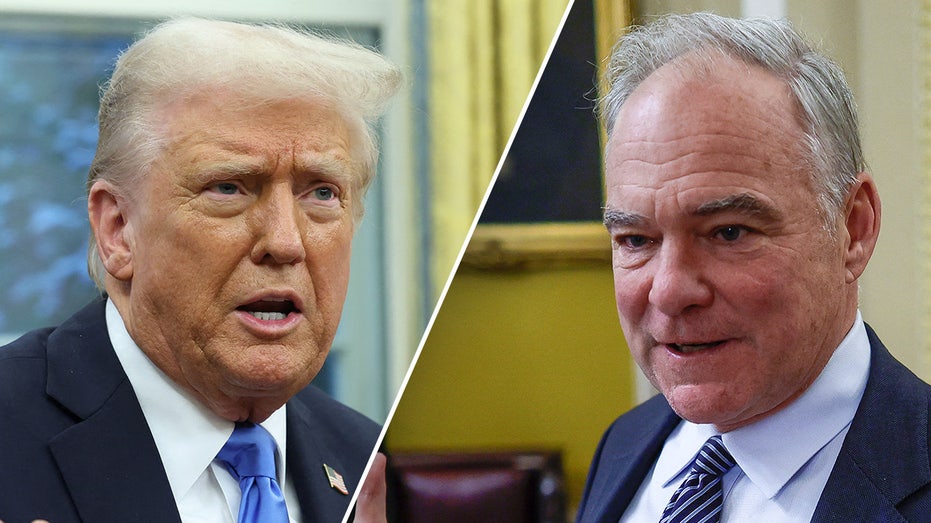Opinion editor’s note: Strib Voices publishes letters from readers online and in print each day. To contribute, click here . ••• Gov.
Tim Walz shocked and surprised Minnesotans by proposing to delete the long-standing Political Contribution Refund program from the state budget (“ Walz revises budget plan, adds spending cuts ,” March 22). This program refunds small contributions by donors to political campaigns in an attempt to offset large contributions by the wealthy, in a small way. The expense is minimal — $4.

3 million in the 2026-2027 biennium. We have seen recently the actions by billionaires to control our government through huge contributions. And recently, in the lead up to the Wisconsin Supreme Court race, Elon Musk offered $100 for each petition signature opposing “activist judges.
” Governor, please withdraw this antidemocratic proposal. George Beck, St. Louis Park ••• In Rochelle Olson’s March 20 “ Cheers and jeers ” column she cheered state Sen.
Rich Draheim for introducing a bill to prohibit state grants to nonprofits whose leader has a salary exceeding 125% of the governor’s. I’m not necessarily against such a formula, and I believe that the bill is well intentioned. However, its sentiment spotlights glaring double standards and misperceptions.
First, why single out leaders of nonprofits? Many for-profit businesses also receive state contracts. Are you going to hold their leaders to the same limits? Because nonprofits have noble missions (hence we give them a tax break), then their leaders must be noble, too, right? Let’s penalize them for being noble and make sure they don’t get paid very much, shall we? I’ve known a number of CEOs of nonprofits, and — without exception — they are fine, principled people who put mission above money. They are already compensated well below peers in the for-profit sector, and they pay income tax like everybody else.
To be fair, the for-profit CEOs I’ve met have also been good, highly principled folks. This is Minnesota, after all. Second, I suspect this double standard arises because of public misperception about government grants.
Grants are not “gifts” that enrich the recipient. Grants come in the form of contracts with the state that legally obligate the recipient to provide goods and services to the citizens of Minnesota. They are fundamentally no different from a state contract to a for-profit construction firm to build a highway or bridge.
In one view, a grant is a willingly received “sentence” to several years of hard labor at below-for-profit wages to make Minnesota a better place to live. In terms of scientific research grants, many of the recipients are doing work that virtually nobody else can, at graduate-student or postdoc wages. Yes, I realize the lack of accountability regarding Feeding Our Future has left a bad taste in the mouths of Minnesotans, and it should.
But that case stands out exactly because it is the exception and not the rule. The bad players have been brought to justice. Is that not enough for you? Do not tar all other nonprofits with the same brush.
Jim Almendinger, Stillwater The writer is a former nonprofit director. ••• “ Walz sales tax proposal hits consumers, while sparing business-to-business transactions ,” reads the headline of a March 28 MinnPost article. Such a reasonable tone it sets by noting Walz “wants to tax people when they get financial and legal advice,” which critics say “hurts vulnerable residents while leaving businesses unscathed.
” I understand finding equitable ways to tax is a difficult and thankless task, but overlooked in the arguments I’ve seen in this particular tax debate is its impact on the constitutional assurance of fair and equal access to justice. The adversarial nature of our U.S.
justice system makes hiring legal representation a virtual necessity, while the practical reality of representation’s cost makes it more a mockery than a reality for far too many. I’m not talking about the cost of legal advice for investing, but the cost of legal representation to right a wrong, to seek redress, to fight for rights that have been wrongfully denied. While I deeply admire and respect Walz, unless this tax proposal is reformulated it will become just another injury for those seeking justice.
And I want to think that’s not what those advocating it intended. Christine Viken, Lake City, Minn. ••• Walz may not wish to boost his own salary because of the poor optics, coupled with his potential ambition to run again for the state’s top job (“ Walz, Flanagan to deny pay raise ,” March 28).
That is his prerogative, but that does not make it less ridiculous that Minnesota’s leader makes less than many of its government employees. I believe that many of our state’s public servants should be paid more than they currently are. Why? Because we do not want to live with a government staffed by people working well below their market value.
As both a practical matter and a matter of principle, the pay of public servants should be re-evaluated and revised, with the aim of better reflecting the true value of our state employees. Civil servants and public officials have hard jobs — jobs that would, in some cases, net them much higher pay in the private sector. Of course, government pay will never be equivalent to the private sector.
That is part of the nature of public service. Still, we should aim for compensation packages that are more evenly balanced, with twin goals: attracting and retaining talented employees, and enabling those with lesser means to comfortably serve in government. Minnesotans deserve top-notch government services and civil servants with the qualifications and skills required to confront difficult issues.
The people tasked with doing that hard work should be compensated appropriately. Brian Wagenaar, Eden Prairie Can’t take the heat? Resign. The actions of our current president described by retired Minnesota Court of Appeals Chief Judge Edward J.
Cleary should frighten us all (“ A step-by-step checklist toward autocracy — moving along too easily so far ,” March 26). The U.S.
Supreme Court’s majority opinion in a well-known free speech case (Texas v. Johnson, 1989) said “The Government may not prohibit the verbal or nonverbal expression of an idea merely because society finds the idea offensive or disagreeable.” Even Justice Antonin Scalia, not exactly remembered as a liberal apologist, joined in this opinion.
Criticizing the government is as American as apple pie. Efforts by the current administration to threaten and intimidate those who dare to speak in opposition is a disgrace. Being president means you will be criticized.
If the current occupant is unable to handle criticism, he is free to step down. James Demgen, Buffalo ••• Every day brings more news of President Donald Trump imposing one-man rule. Add to the list Cleary’s excellent article on our descent into autocracy, Trump’s illegal order requiring citizenship proof for voting, and the Paul Weiss law firm’s response to Trump’s order restricting the firm’s rights even to enter federal buildings.
The order was based on purported findings made by Trump without any due process. Paul Weiss is a firm of more than 1,000 lawyers and more than $2 billion in annual revenue. An email from the Paul Weiss chairman to employees explained why this powerful firm negotiated rather than sued to retain rights.
A court challenge to the Trump order “would not solve the fundamental problem, which was that clients perceived our firm as being persona non grata with the Administration.” If avoiding the perception of conflict with the Trump administration is to become the guiding light even of powerful organizations and institutions, how can we continue to regard ourselves as a free and independent people? The White House version of its agreement with Paul Weiss includes purported terms not found in the Paul Weiss version. Without a public, written agreement, we do not know the full magnitude of the law firm’s concessions.
Other organizations subject to executive orders will have to guess how much abasement will placate the executive. I am 80 years old. I continue to be opposed to the one-man rule values of the Trump administration.
Bill Wernz, St. Paul The writer is a retired attorney. ••• Thank you to Judge Cleary for his excellent analysis of how fast the Trump administration is eroding American democracy.
As a Minnesota attorney, soon to celebrate 50 years practicing law, I have never witnessed American democracy in such danger of collapse. In fact, without exaggeration, we are witnessing the rise of the First American Reich. American patriots need to work together to stop this! Tom Casey, Mound.
Politics
Readers Write: State budget, descent into autocracy
Now, when we are seeing unprecedented levels of campaign spending from wealthy donors, is not the time to eliminate Minnesota’s Political Contribution Refund program.















